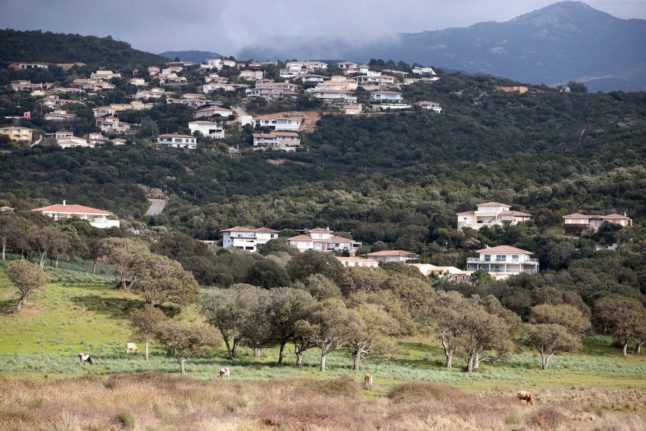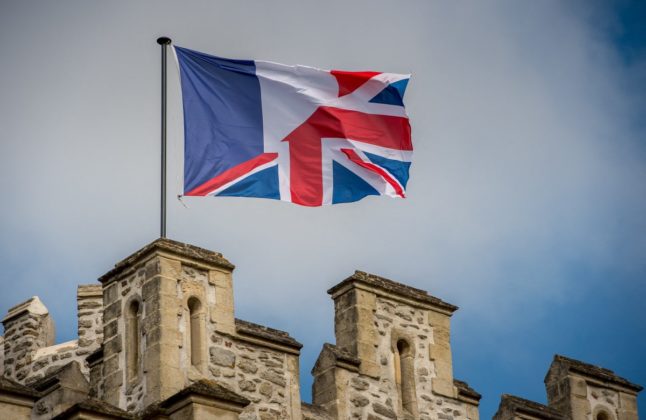Owning a second-home in France is a dream for many – French and foreign alike. Some imagine a life on the Breton coastline enjoying fresh seafood and cidre, while others aspire to a chalet in the Alps or heading down to the Riviera to soak up the sun.
It’s estimated that around one in 10 properties in France is a second home and although some areas have a high concentration of foreign owners, the great majority of French second-homes are owned by French people.
There are reasons for this. The relatively cheap property prices in parts of rural France, means that having a second home is not only the preserve of the super rich, while inheritance laws often mean that property ownership crosses generations.
Coastal areas are, unsurprisingly, popular locations for second homes while the five communes in France with the highest proportion of second-homes are all in the mountains.
The area with the most second homes proportional to total properties, in 2019, was Germ in the Haut-Pyrénées – a ski resort where 96.97 percent of the properties are classified as second-homes.
As for the other top four communes, three are in the Alps and the fourth is in the Pyrenees mountains. All of these areas have over 92 percent of properties reported as second-homes.
It’s true, then, that second home-ownership is popular in France.
But, equally, there’s no doubt officials and locals aren’t always entirely happy about the number of properties that lie empty for a considerable portion of the year, or those that are used for short-term lets.
Official pressure
Thousands of French communes are officially designated as ‘zones tendues’. Literally translated as ‘tense zone’ in this context, it means an area with a housing shortage.
To be officially designated by the government as a zone tendue, local authorities must be able to show that the area has a housing shortage, or that locals are priced out of the market.
If you own property in a zone tendue it could affect the property taxes you pay.
Areas with zone tendue status have the power to impose a surcharge on the taxe d’habitation on second-homes of up to 60 percent. And they do. Saint-Tropez said in 2023 that it would use an estimated €3million raised in property taxes on second and holiday properties to build affordable homes for local residents.
Parts of the French Riviera have a particular problem that the people who buy second homes there tend to be very wealthy, meaning that the property market quickly spirals out of reach of local people – many of whom are employed in low-wage jobs in the tourist sector.
READ ALSO Rent control rules for tourist towns in south-west France
Meanwhile, the rules in France on short-term property rentals are strict, requiring owners to register their property with local authorities, and set up a small business for tax purposes.
Other local authority areas have gone further – for example the city of Paris has a complete ban on renting out second homes.
READ ALSO What are the rules on renting out French property on Airbnb?
Local resentment
Official pressure is often borne out of local resentment with full-time residents fed up that they are their children are priced out of the housing market.
Most content themselves with grumbling at local meetings but some people do go further.
In summer 2022, a mystery night-time environmental vandal sabotaged outdoor jacuzzis at holiday lets and second homes in a Vosges mountain town, amid rising tensions between tourists and locals at the height of a water shortage.
READ ALSO ‘Water is for drinking’ – vigilante sabotages jacuzzis in French tourist resort
The town’s population jumps from around 8,000 out of season, to between 20,000 and 30,000 at the height of the holiday season, it was reported at the time.
The same year, vandals ‘tagged’ two properties in the Brittany département of Morbihan with the messages Finis les riches (No more rich people), and La BZH aux BZH (Brittany for the Bretons, with Breizh being the Breton-language word for the region), as the region grappled with rising second home ownership. Regional newspaper Le Telegramme reported at the time that one in four properties in the popular resort of Saint-Malo were second homes.
Finance minister Bruno Le Maire is one of many French people to own a second home – in his case in the Pays-Basque in south-west France. In 2022 his property was briefly occupied by activists calling for extra powers for local authorities to impose a surtax on second homes, with the money going towards creating affordable housing for local people.
Meanwhile, second homes in Brittany and Corsica – where as many as one in three properties are holiday homes – have increasingly become targets for arsonists, France 3 reported.
Another Breton woman caused a stir on social media in 2023, when she decided to sell her late grandmother’s home at below market value, but only to a local person who would use it as their main residence.
Government action
The government has been criticised in some quarters for a ‘timid’ approach to the proliferation of second homes. It agreed to increase the number of ‘zones tendue’ to smaller towns only after a period of pressure from local authorities facing a shortfall in available housing.
Recent changes to taxation mean that now only second-home owners pay the property tax known as taxe d’habitation, which as discussed earlier can be the subject of a surcharge in areas with a housing shortage. This has made some local mayors more amenable to second-homes, since the extra taxes provide a valuable source of local income.
Regional officials in some areas – notably in Brittany and Corsica – have demanded plans be drawn up for the establishment of resident status, in which properties may only be purchased by people intending to permanently live in the area.
And more than one Breton MP has in the past called for a capital gains tax on property in force in Corsica be extended across the country. But, the most recent attempt, in 2023, was rejected out of hand by the government.
The subject of second-homes has come up in negotiations between the Corsican parliament and the French mainland for increasing autonomy for the island – one of the early demands was for a ban on property purchases on the island for people coming from mainland France.



 Please whitelist us to continue reading.
Please whitelist us to continue reading.
Member comments